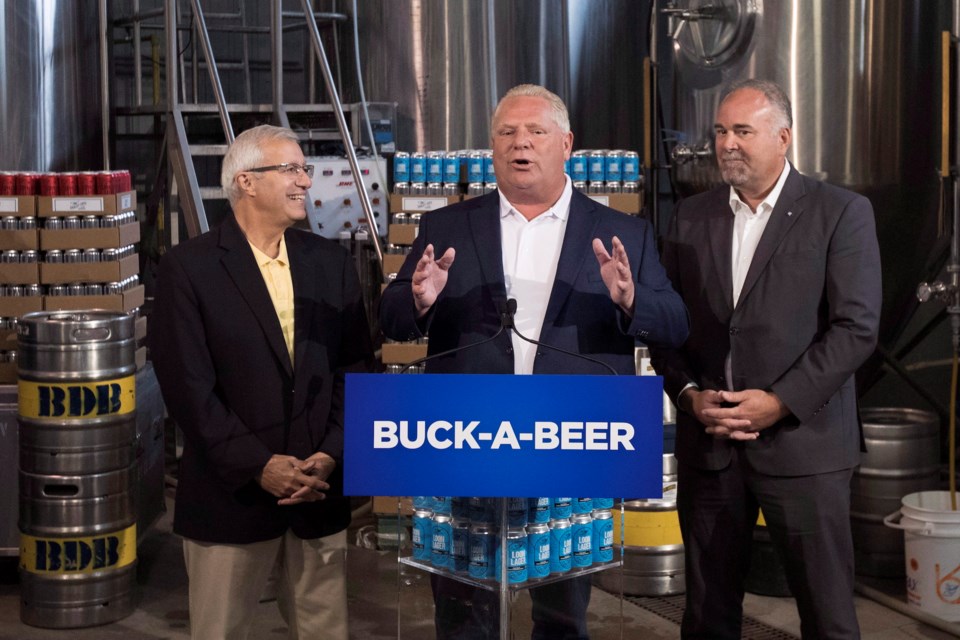EDITOR’S NOTE: This article originally appeared on The Trillium, a new Village Media website devoted to covering provincial politics at Queen’s Park.
The Ford government is speeding up its plans to get wine, beer, and ready-to-drink alcoholic beverages into grocery and corner stores.
The alcohol sales liberalization will be phased in through the summer and fall:
- as of Aug. 1, the grocery stores that are currently licensed to sell beer, cider or wine will also be able to sell ready-to-drink beverages and offer larger pack sizes that are currently exclusive to the Beer Store;
- after Sept. 5, eligible convenience stores will be able to sell beer, cider, wine and ready-to-drink alcoholic beverages;
- and after Oct. 31, all eligible grocery and big-box stores will be able to sell beer, cider, wine and ready-to-drink beverages, including in large pack sizes.
When Ford's Progressive Conservatives first campaigned in 2018, they promised to bring beer and wine to corner stores, grocery stores, and box stores — but eventually decided to delay that promise until Jan. 1, 2026, when the province's master framework agreement with The Beer Store, which limits where beer can be sold in the province, was to expire. Breaking it early would come with a hefty penalty — reportedly as much as $1 billion — paid to the international consortium of beer companies behind The Beer Store.
But the government announced Friday it's come to a new agreement that will see it pay $225 million to The Beer Store, "to protect jobs across the province and to keep The Beer Store locations open for the continued availability of recycling and bottle return." Civil servants who briefed reporters would not say if the payment was connected to moving forward before the master framework agreement expired.
The plan announced Friday will allow retailers — including the giant grocery and big-box chains such as Loblaw and Walmart — to set their own prices for wine, beer, and ready-to-drink alcoholic beverages, either above, or below, the prices at the LCBO, which will remain consistent, as long as they don't go below the regulated minimum prices for different types of alcoholic beverages.
According to draft regulations shared with reporters, customers will be able to buy alcohol with loyalty points at retail stores.
At least until 2026, retail stores will buy alcoholic drinks from the LCBO at 10 per cent discount from the LCBO's retail prices, allowing them to undercut LCBO prices and still profit. Civil servants confirmed the retailers will be able to sell alcohol as a loss leader to get customers into their stores, or boost the prices as they choose.
Premier Doug Ford and Finance Minister Peter Bethlenfalvy were scheduled to speak with the media about alcohol sales liberalization Friday morning.



